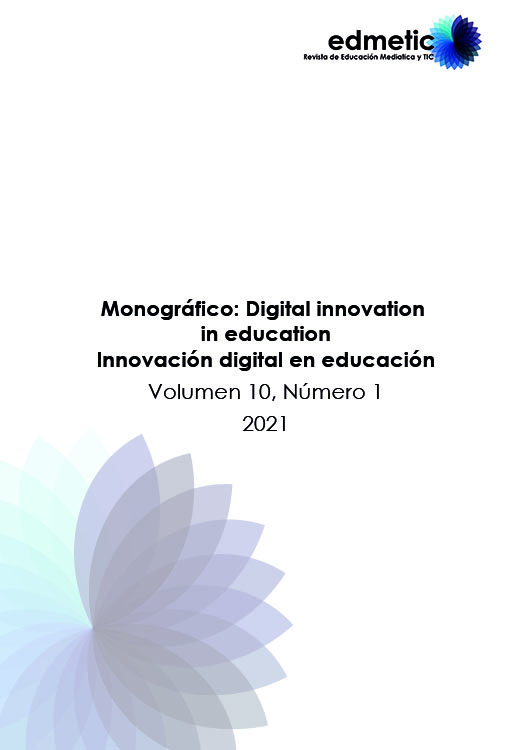Digital skills and difficulties of the students of the Pedagogy course of the State University of Ceará (Brazil) through distance education
Main Article Content
Abstract
Nowadays it is important that students and teachers have a good digital education in order to be able to teach and receive different contents through digital platforms. In this sense, this article aims to analyse the Pedagogy course at the State University of Ceará (Brazil) and to give a voice to the different agents who participate in it in order to find out about their training in terms of digital competence and face up to their learning in a virtual educational modality. To this end, various instruments were used from a case study, applied to 23 students. The results showed little knowledge about the use of ICT before the start of the blended learning course and revealed that the students' precarious economic conditions prevented them from accessing a computer with internet at home, which had a negative impact on academic education. Furthermore, that students are aware of the need to master ICT in the teaching of distance education (DE). It is concluded that DE students in the UECE are not well trained to interact successfully and that tutors need continuing education in digital education. To close the study, compiling the contextual analysis, a SWOT matrix is proposed.
Downloads
Article Details
TRANSFER RIGHTS AND COMMITMENTS TO EDMETIC, REVISTA DE EDUCACIÓN MEDIÁTICA Y TIC
E-ISSN: 2254-0059
The undersigned author(s) of article entitled:
- Transfer to EDMETIC, Revista de Educación Mediática y TIC publishing rights of the article mention before. The magazine will have the right to publish in any format or media this article.
- The author(s) claim that this article is original and which has not been published before in any format and wasn´t submitted for evaluation to another publication.
- The author(s) claim that this article has the copyright´s permissions for publication
- The author(s) accept the changes to the contents on the review, and changes in the style of the manuscript by the Editorial Board of EDMETIC, Revista Educación Mediática y TIC.
- The author(s) declare that they have complied with the ethical principles of research.
- The author(s) not be subject to personal or business association that involves a conflict of interest with article presented
- El author(s) undertakes to give the primary sources of information, if requested.
Date:
Author(s) names and signatures (1):
(1) Fill the form and send to: revistaedmetic@uco.es
